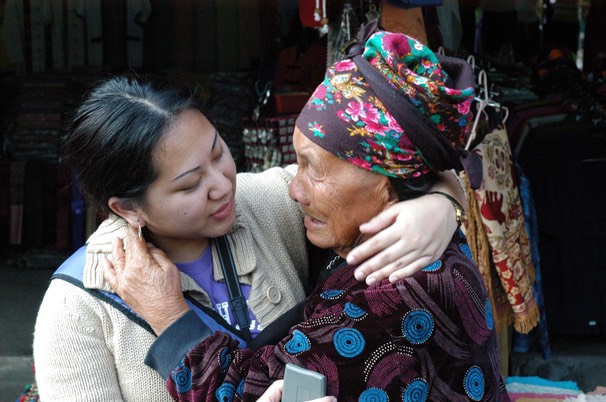While attending university, one of my professors labeled the “state of parenthood” as the biggest welfare system around, bar none!”
This begs the question, “So why do parents do it? Why do parents devote so much of their time, love, money, and devotion to children?” I know there are many complex answers to this question, but one simple answer I’d like to suggest is GRATITUDE.
What is gratitude?
If you Google the word gratitude it is defined as: “Being thankful; readiness to show appreciation for and to return kindness.” I believe one of the basic satisfactions of parenthood is that you raise children who are thankful, grateful, and appreciative of the sacrifices you as a parent made for them. Parents do so much for their children and modestly want a bit of gratitude in return.

As a professor, I took several student groups abroad to Thailand. During one trip in northern Thailand we crossed the Mekong River to an island in Laos. When we got to the island, one of my Hmong students stood on the bank of this treacherous river looking back to Thailand and began to cry. I asked, “What’s wrong?” She replied, “Only now I understand all that my parents did for me! I was only two years old the last time I crossed this dangerous river. I was strapped to my father’s back. At night, bullets flying overhead, he and my mother were in water neck deep while holding onto a bamboo raft. They made it to safety before being killed by the Communist forces shooting at them. And now I am an American citizen; the first in my family to be graduating from college! I am so thankful for everything they did for me.” This student’s story confirms Melody Beattie was correct when she wrote: “Gratitude makes sense of our past, brings peace for today, and creates a vision for tomorrow.”
Raising the Grateful Child
Raising a grateful child has a number of benefits. Research shows that people who are grateful act in ways that are beneficial to themselves, other individuals, and society at large. “By experiencing gratitude, a person is motivated to carry out prosocial behavior, energized to sustain moral behaviors, and is inhibited from committing destructive interpersonal behaviors.”
Research On Gratitude
- Grateful people behave in prosocial ways (p.252),
- Gratitude positively affects well-being and spirituality (p.263),
- Gratitude stimulates moral behavior and builds social bonds (p. 214),
- Children’s understanding of gratitude is a process that takes several years (p.215),
- In one experiment, few (21%) children younger than age 6 express thanks when getting a gift, while most (80%) 10 years or older expressed gratitude (p.215),
- The expression of gratitude solidifies between the ages of 7 and 10 (p.215),
- Grateful thinking of positive life experiences allows people to get the greatest satisfaction and enjoyment from their current circumstances (p.75),
- The ability to appreciate one’s life circumstances becomes a coping mechanism allowing for a positive reinterpretation of problematic life experiences (p. 75),
- Ungrateful people regularly respond to others’ kindness with resentment, hostility, or indifference (p.260).
- The practice of gratitude inhibits negative feelings like envy, bitterness, anger and greed (p.75),
- The grateful child becomes a happy child (p.8),
- The grateful child is not an overindulged child (p.8).
The Grateful Child Is Not An Overindulged Child
In our eighth study on overindulgence we found that childhood overindulgence leads to ungratefulness, the inability to delay gratification, an increase in materialistic values, and overall unhappiness in adulthood. Conversely, if individuals are not overindulged as a children, they are more likely to feel grateful, delay gratification, have fewer materialistic urges, and be happy.
There is more help about avoiding overindulgence in How Much is Too Much? Raising Likeable, Responsible, Respectful Children – From Toddlers To Teens – In An Age of Overindulgence (2014, DaCapo Press Lifelong Books).
Photos by David Bredehoft, quotes from BrainyQuote.com.


